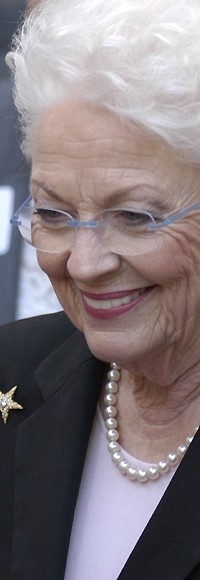
A discussion with Gov. Ann Richards
Former Gov. Ann Richard’s held an informal interview withthree journalists Thursday in a private upstairs room in the FirstUnited Methodist Church in Highland Park. Other news organizationshad been invited to attend the interview session since questionswere forbidden at the lecture. The Dallas Morning News, the FortWorth Star Telegram and other organizations declined, stating apreference for obtaining their materials from the lecture only.
The subject of the lecture was Richards’ battle withosteoporosis, a crippling bone disease, and her book, I’m NotSlowing Down: Winning My Battle with Osteoporosis, written toencourage women not to let the disease destroy their lives. Shewants to offer them hope.
In 1996 after falling and fracturing her right hand, Richardshad a bone density test and was diagnosed with osteotenia.
Osteotenia is an early stage of osteoporosis. Osteoporosis is adisease that decalcifies bones and causes them to fracture,splinter or even decompose into a mushy calcitic mass.
As the disease spreads from one affected area to the next,victims begin losing use of their limbs because of the delicacy ofthe bones.
Arthritis, an inflammation of the bone, often accompanies thedisease and causes the victim severe pain.
If not treated with the newer therapies and medicines while inits early stages, the disease spreads and eventually may cause thevictim to be end up in a wheelchair.
As the muscles atrophy, the victim becomes susceptible to otherailments that can lead to death.
In Richards’s book, she says that she was diagnosed in theextremely early stages of the disease seven years ago.
She began a rigorous regimen of exercise, careful diet andtreatments with various medicines. As a result, her bone densityhas remained unchanged since she was first diagnosed.
According to specialists in this field, victims in the laterstages or people who cannot afford the vast amounts of time with adoctor and the medicines that accompany the diet and exercise,cannot expect the same results Richards has had.
These victims may be able to arrest or slow down furtherprogression of the disease as new medicines and treatments aredeveloped.
The following are the reporter’s questions andRichards’s answers.
DC: What are some of your plans for the future?
Richards: I can do anything I want to do. The point of the book,and the point of the name of the book is, “I’m notslowing down,” and so I’m not. I wrote the book becauseI wanted women to understand that there are things that you can do;diet, exercise and medication can combat the disease and can letyou lead as active and as energetic a life as you choose.
DC: What is the moment in your life of which you are mostproud?
Richards: I think that, in a public sense, certainly beinggovernor of Texas was the most wonderful thing that anyone couldpossibly have happen to them. In a personal sense, I think it is myrelationship with my children. I have two girls and two boys, allof whom are grown. They are not just my children, but they are alsomy friends, and I value that relationship probably more thananything else.
DC: What do you think is your single most or greatestachievement while you were governor?
Richards: There are a number of them, but I think the thing thathad the most far reaching effects was the equalization of fundingof the public schools. Equalizing opportunity for all of the publicschool children of Texas was an enormous thing. There are a lot ofother things that matter to me emotionally. I appointed more womenand minorities to positions of power than any, well, than all ofthe governors combined, frankly. It set a tenor and a tone. Nogovernor after me will be able to go back to the old system ofappointing only white males.
The hardest thing to do when I was governor was that we were ina recession. We were $6 billion in debt. We had to rejuvenate theeconomy, and we had to bring back business to Texas. We did that.When I left office, we were $2 billion in the black.
Achieving that economic turn around was very difficult to do.I’m really proud of that.
DC: What do you think is the most disappointing experience youhad in the governor’s office, the one thing that you wantedto do that you didn’t get to do or that wasn’t what youhoped?
Richards: I wanted the lieutenant governor to agree to a teacherpay raise, and I couldn’t get him to do that.
The fact that we were unable to get a pay raise in the lastsession of the legislature that I was there was a hugedisappointment to me.
In part two: Richard’s perspective on President Bush andcurrent Texas government.








